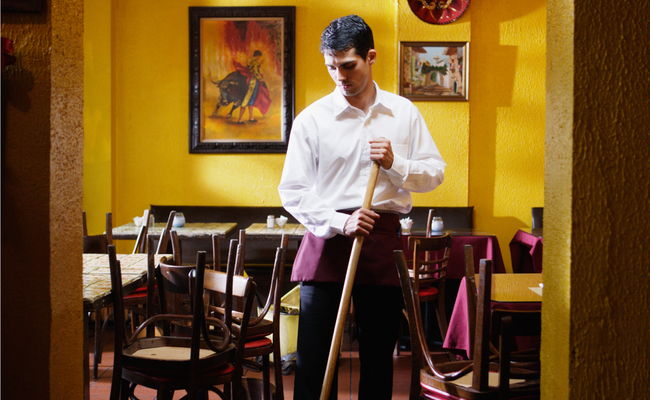
We’ve all done it: You make reservations at a swanky restaurant for a late dinner on Friday. You need to call ahead days (or weeks) in advance to get a spot. But the day comes and you have better things to do. Maybe you’re immersed in a Netflix Binge or ordering a pizza seems like a better option than getting dressed up for a 10pm reservation.
So you don’t show up to the restaurant and they’re left wondering where you are and why they’re reserving a table for someone who isn’t coming. When you make a doctor’s appointment and don’t show up, they charge you for wasting their time. Maybe, some people think, there should be a similar penalty in the restaurant business.
Well, there is. It’s not happening in the US yet, but if you live in Australia and you decide dinner at your in-laws is a better option than showing up for your restaurant reservation, you could be blacklisted from making reservations in the future. If that’s not a rough penalty, we don’t know what is. Keep it up and Little Caesars won’t even accept your orders. No more Hot-N-Ready Crazy Bread for you, because you can’t keep your word.
One of the most popular online restaurant booking apps, Dimmi, started blacklisting flaky customers last year. Currently, 38,000 people are on this not-so-enviable list. If you don’t think that’s a lot of people, you should know that there were just over 3,000 people on the list last year. That’s a pretty big leap in careless customers in only one year.
“The industry is better without this customer,” Dimmi founder Stevan Premutico told Australian site Broadsheet. “They are the guys who cripple the profitability of these restaurants, who make them charge more for the rest of us.”
Imagine this from a restaurant owner’s viewpoint. They have a Friday night booked up with reservations. If even 25% of the reservations don’t show up, that hurts the restaurant. When you don’t show up, that’s one less table getting served for a half hour or forty-five minutes or whatever. If a restaurant loses that income, they have less money to pay their staff. If they have less money to pay their staff, nobody will want to work there. Eventually the restaurant closes and then you wonder why. “That place was great. Why did it close?” you think. It’s because you didn’t show up for your reservations, you nitwit!
Restaurants can also go another route and charge a lot more for your food. Do you want to pay $30 for a burger? According to a report from Dimmi, reservation “no shows” cost the Australian restaurant industry $75 million dollars per year. If it’s that bad down under, can you imagine the amount of lost income in the American restaurant business? The numbers must be staggering.
The only positive from the “black list” is that, since it was introduced, the amount of people flaking on their reservations has decreased by 25%. Since this punishment seems to be having a positive effect on the restaurant scene in Australia, maybe it’s time to bring it to the States. I guarantee you won’t miss your reservations because you’re finishing that last episode of Stranger Things if you get put on a permanent list banning you from eating there.






